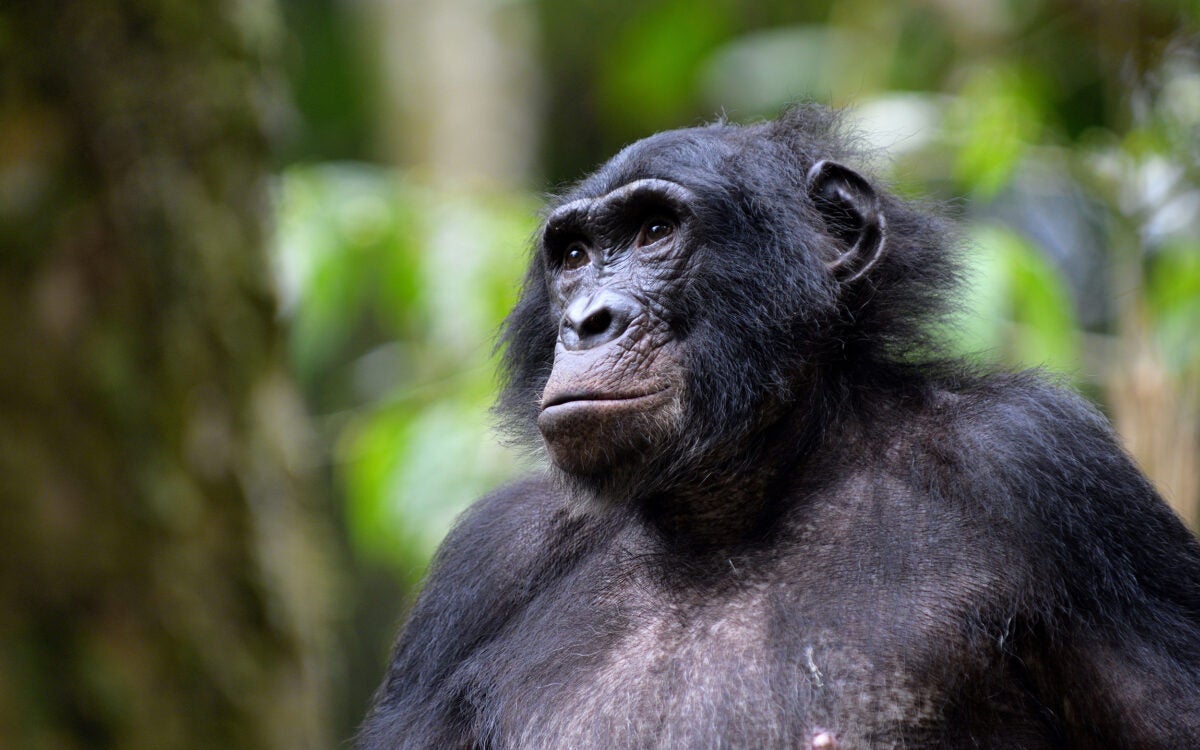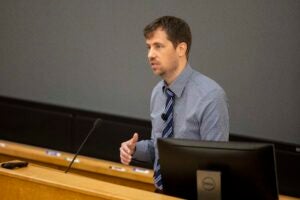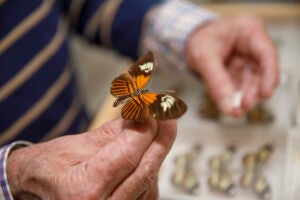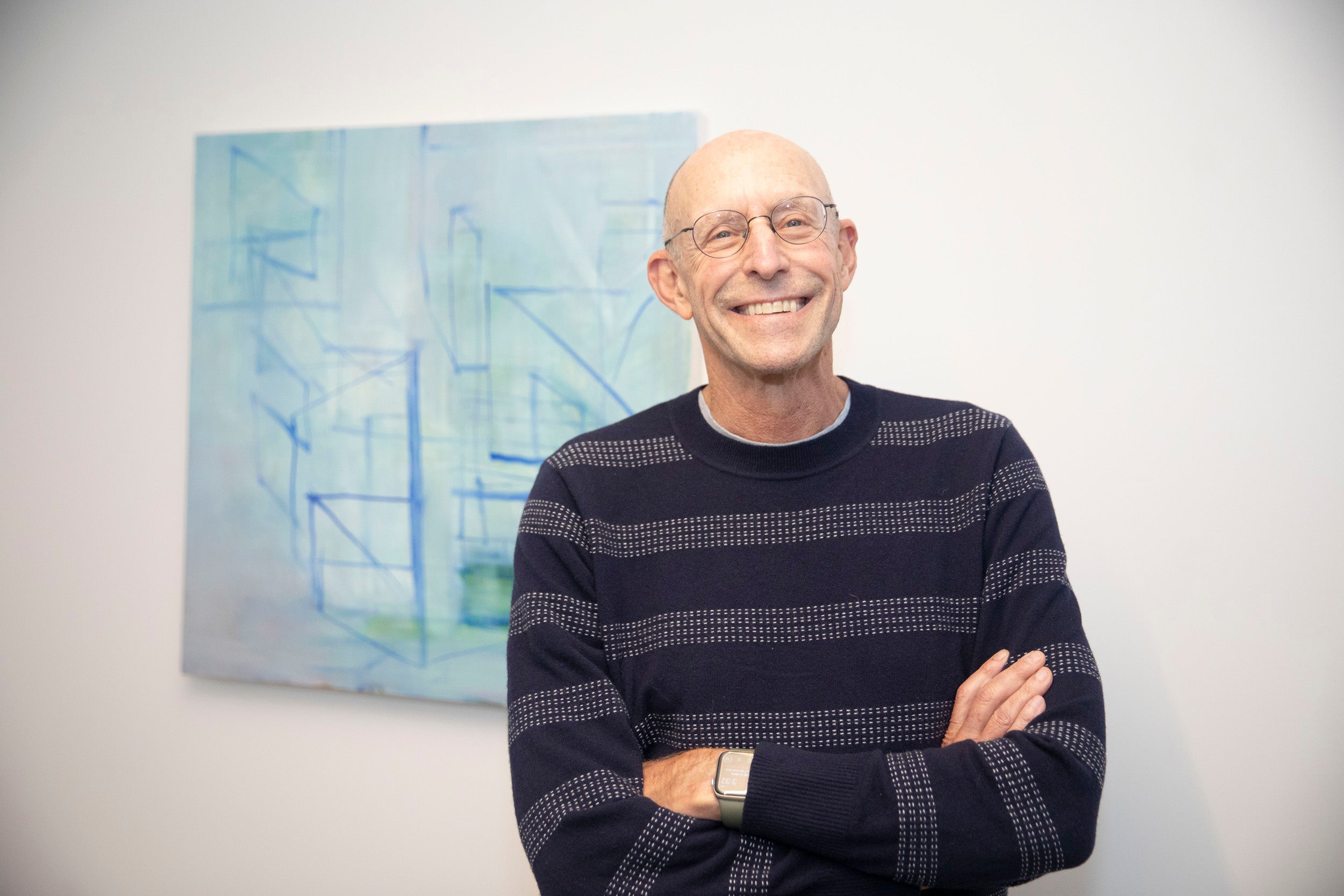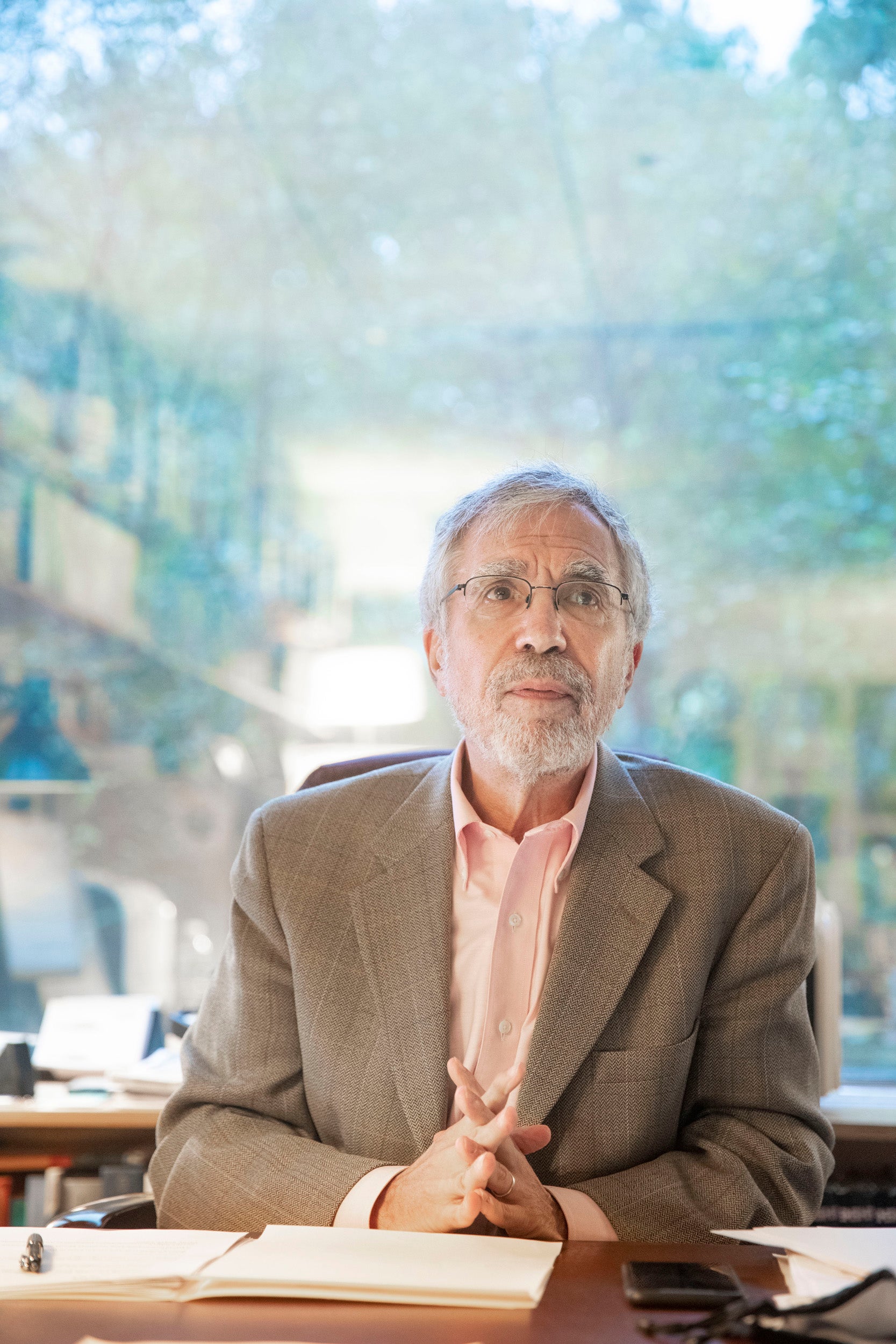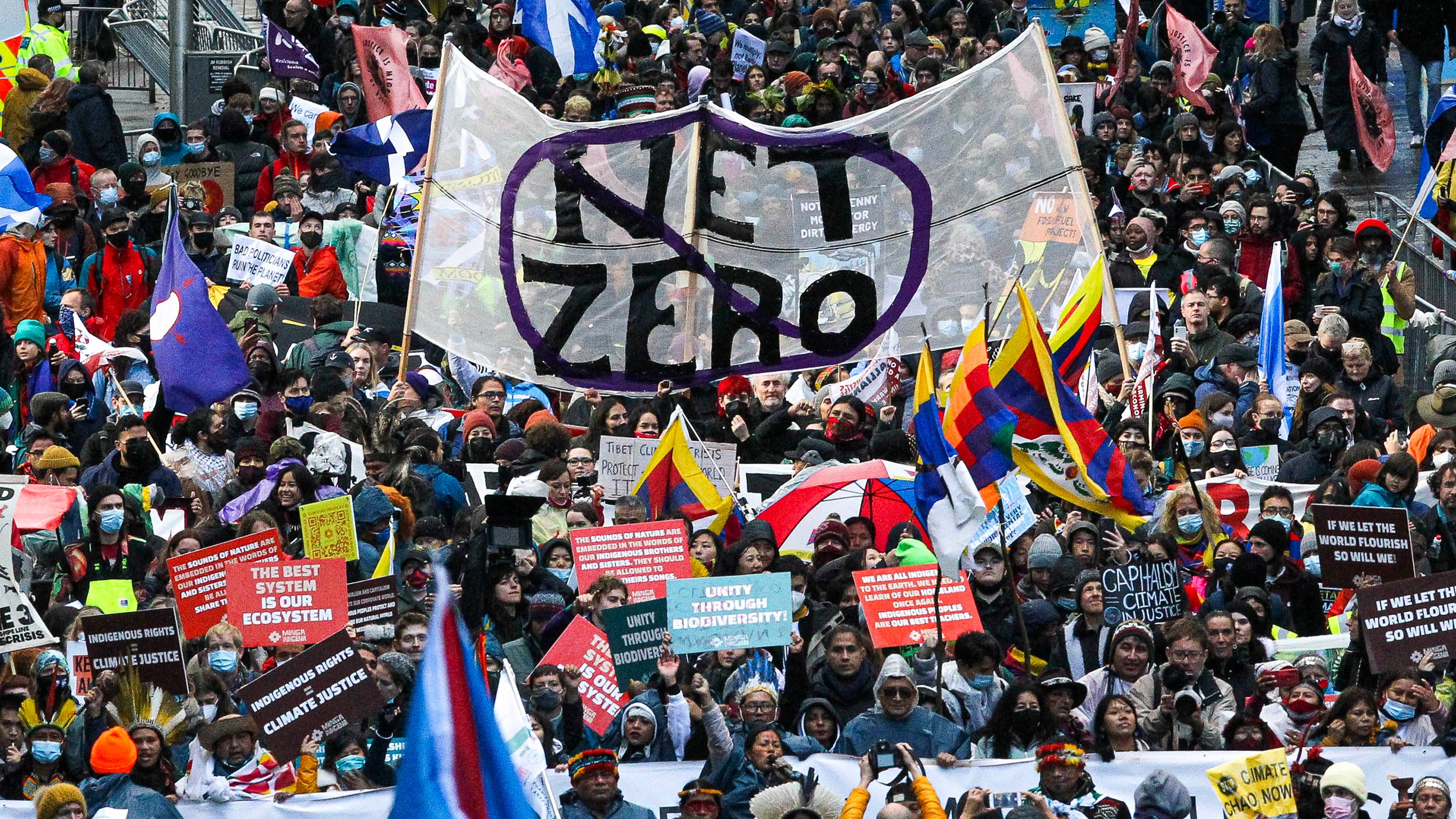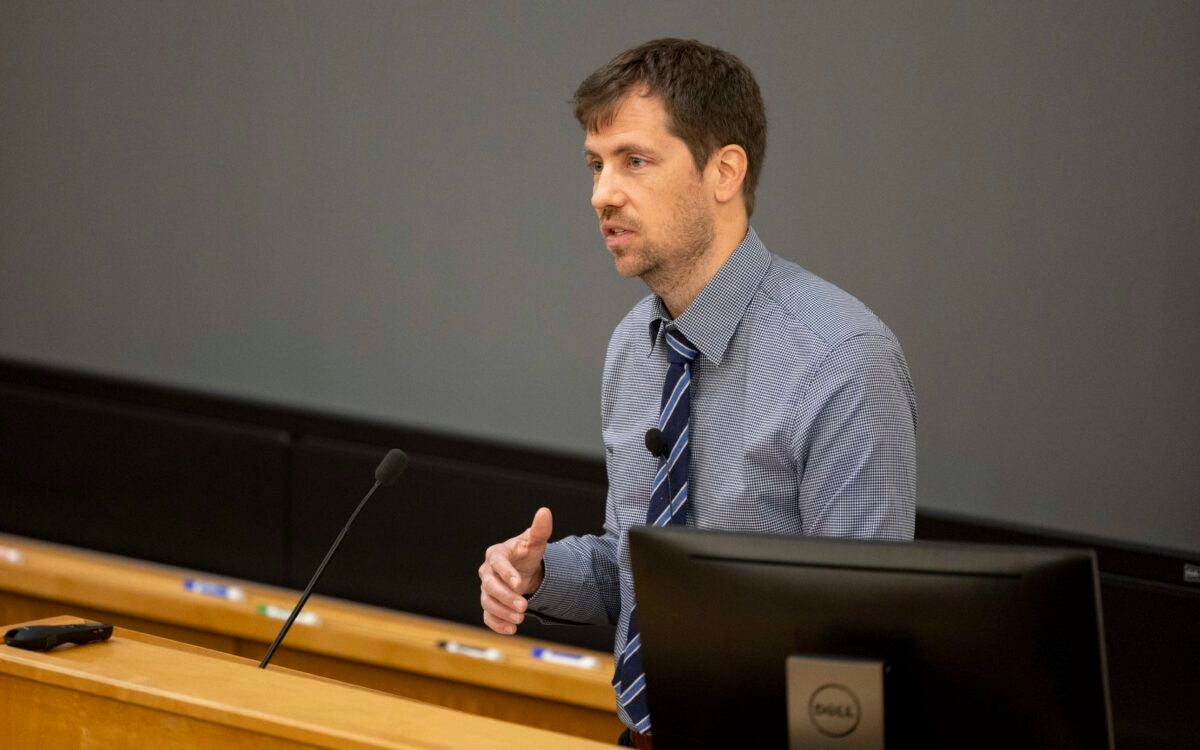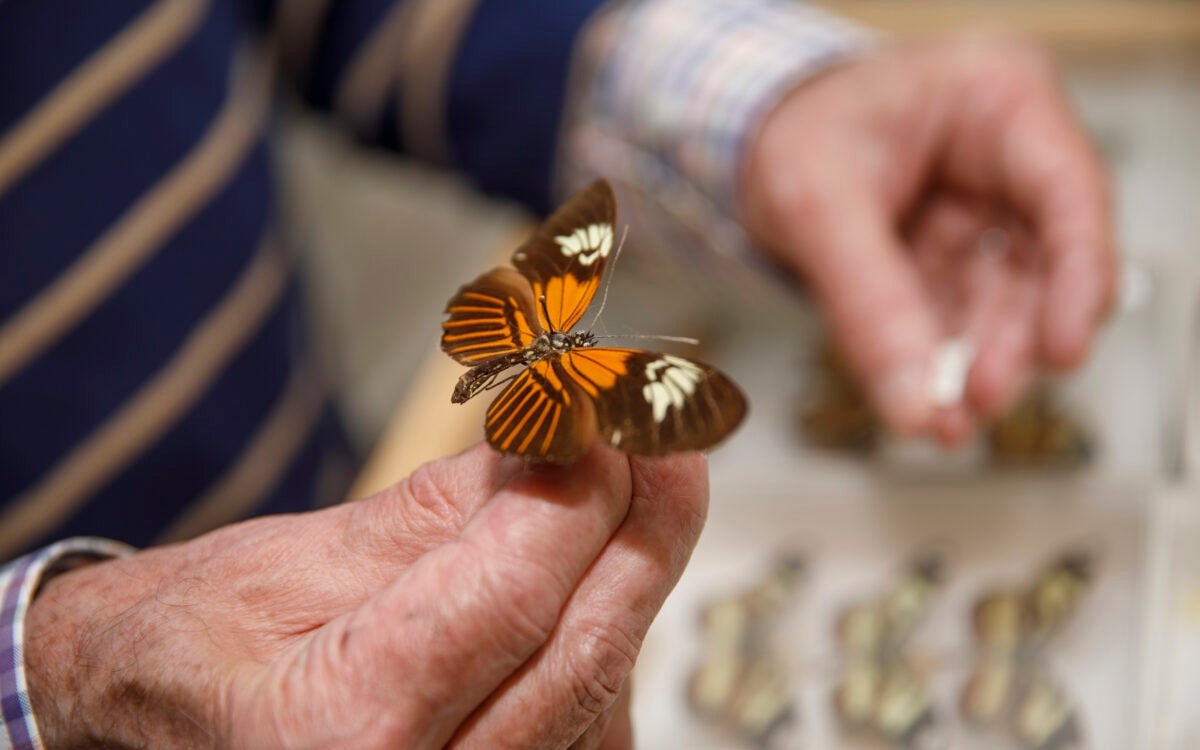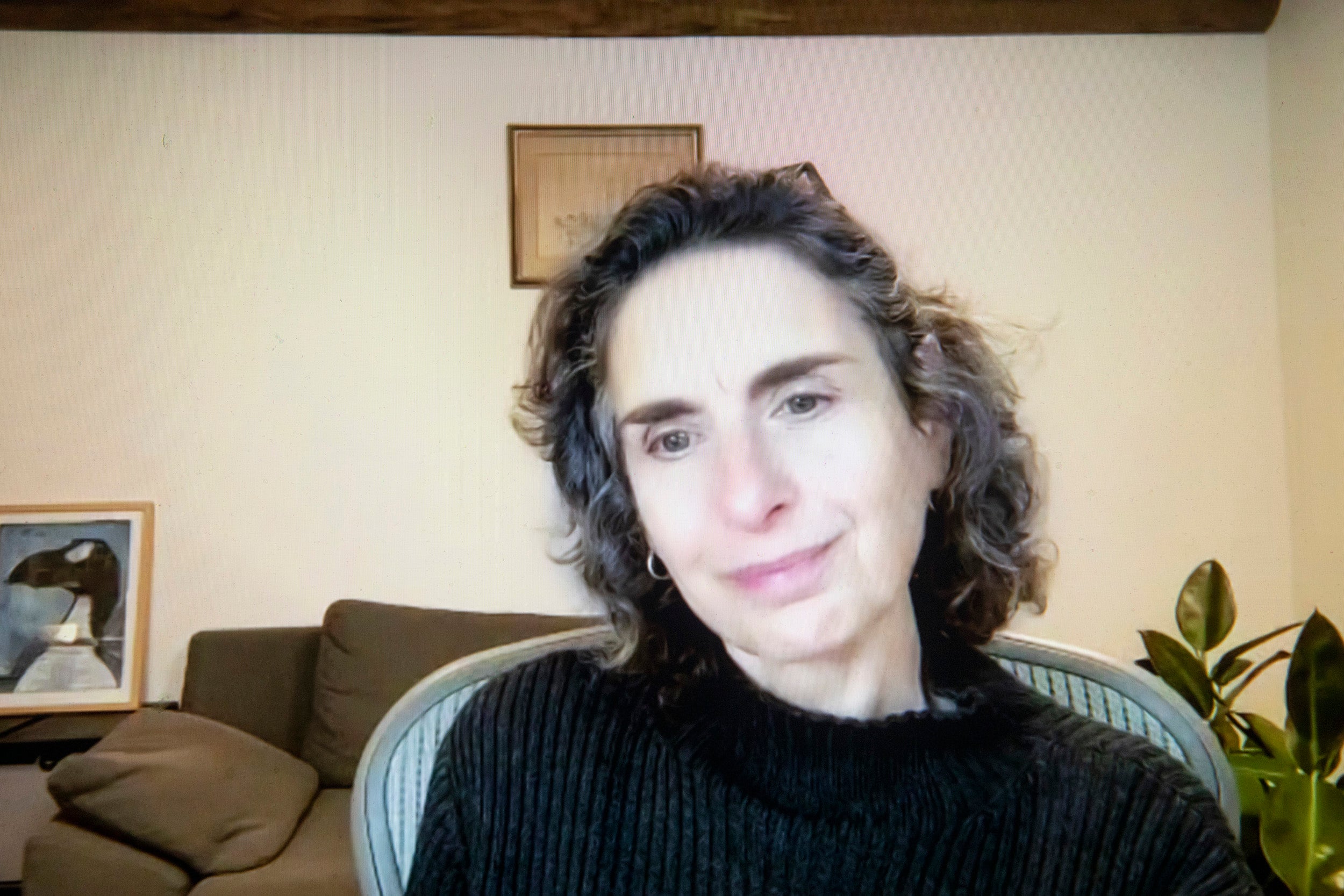
Elizabeth Kolbert (pictured) spoke with “Weather Reports” host Terry Tempest Williams about climate change and the myriad of losses we face.
Kris Snibbe/Harvard Staff Photographer
Elizabeth Kolbert sees a world depleted, and possibly defeated, by climate change
New Yorker staff writer, a Pulitzer Prize winner for ‘Sixth Extinction,’ laments era of inaction in conversation with Chan School researcher
If human activity is killing the planet, can humans engineer a solution to save it? That was the question that ran through “The Climate of Attention,” a Harvard discussion with Elizabeth Kolbert, a New Yorker staff writer and Pulitzer Prize-winning author, on Nov. 15. It is also the theme of Kolbert’s latest book, “Under a White Sky: The Nature of the Future.”
The Divinity School event, hosted by writer in residence Terry Tempest Williams, was part of the series “Weather Reports — The Climate of Now,” a partnership with the Center of the Study of World Religions, Religion and Public Life, and the Planetary Health Alliance. It also featured Samuel Myers, director of the Planetary Health Alliance and principal research scientist at the T.H. Chan School of Public Health.
Williams began the conversation by citing the impact of rising sea levels and asking, “How do we navigate these waters?”
“Everyone is struggling,” Kolbert said, “even if the struggle is to push the information away.” Her focus, she said, is on communicating the truth of what she sees on her beat: climate change. “When I go around the world, I can see what’s missing. I can see all the invasive species that are right here in New England. I can watch all the ash trees dying, being done in by the ash borer.
“One of the things that is shocking to me is the way we just trundle on,” said Kolbert, whose 2014 book “The Sixth Extinction” was awarded a Pulitzer Prize. “Each loss doesn’t get marked, and I see my role to a great extent as bearing witness.”
Williams and Kolbert discussed the case of the Devil’s Hole pupfish, chronicled in “Under a White Sky.” Possibly “the rarest fish in the world,” according to Kolbert, the 1½-inch-long, iridescent blue fish lives only in a thermal heated pool in the Mojave Desert. That pool is fed by an ancient aquifer that began to be noticeably depleted by human use in the 1960s. Although the Supreme Court sided with conservationists, the pool and the pupfish have not recovered and attempts to breed the animals in aquariums have failed. In the latest response, conservationists have built a replica of Devil’s Hole, down to the shape of the rocks, as a “refuge tank” environment. “People started to do all this crazy stuff to get the fish to reproduce,” said Kolbert. The results remain uncertain.
Such interventions are now being considered on a global scale, including attempts at geoengineering or solar radiation management to counter global warming. As Kolbert noted, when volcanic eruptions darken the sky, temperatures cool. “The idea is we could mimic volcanos and counteract some of the warming,” she said. However, the initial experiments to test equipment have been met with protests, and Kolbert is not sold on the idea of an engineered solution. “I put geoengineering in this long line of interventions that had very mixed effects.”
Part of the problem, Kolbert said, is that there is a significant time lag in climate change. “We’re just feeling what was emitted 20 to 30 years ago,” she said. “Any intelligent coastal city has to be thinking about how are we going to protect ourselves against what we know is baked in at this point.”
When Myers joined the conversation, he likened humanity to “a monkey on a spaceship.” For much of our history, he said, we were simply passengers, “hurtling around.” Over time, however, we “made our way up to the cockpit and started flipping levers and turning dials.” These actions have disrupted the spaceship’s flight. “We have a very limited amount of time to learn to fly this rocket ship before it crashes,” he said.
Kolbert was skeptical. “Do we have the knowledge to do this?” she asked. “Our record is not good.”
“If we have any hope of navigating this moment, it’s a political moment — what we need is not more science, but the emotional and spiritual,” said Myers.
Winding up the discussion, Williams asked both participants about the future, and what they tell their own children. Kolbert, whose oldest son is studying climate science at Harvard, said that there’s nothing she can tell him that he doesn’t know. “I do feel there’s a passing off to the next generation,” she added. “The thrill of discovery and the pain of discovery.”
Myers, whose daughters “are just getting old enough to grasp” the crisis, describes a world of possibility. “I say to them what I say to students, which is that this is the most interesting time to be a human in the history of our species. There’s no set of skills that isn’t relevant, and you have the capacity to make a contribution that almost no one has.”
